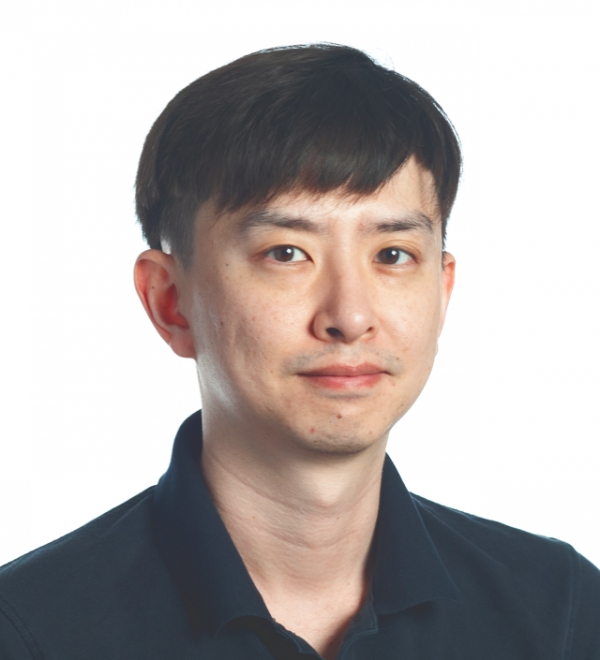
How did you become interested in medical science and engineering?
Since high school, I have been deeply interested in human cognitive function and intelligence. While in medical school, I encountered neuroscience and neurology, thus my determination to study the brain. During my medical studies, I explored various research methods such as growing nerve cells in the biochemistry laboratory during semesters or breaks. Throughout my residency, I was fortunate to be surrounded by neurology professors who were dedicated to both clinical practice and preclinical research. Their example naturally led me to pursue research diligently, alongside clinical practice, rather than treating them as separate pursuits. However, I realized that delving deeply into both clinical practice and research simultaneously had its limits. Therefore, after obtaining my medical license, I started a doctoral program at the Graduate School of Medical Science and Engineering in KAIST and subsequently completed a postdoctoral fellowship at the Janelia Research Campus before joining POSTECH.
What results are you anticipating with your current research?
My research focuses on Systems Neuroscience, which involves studying how neurons, neural circuits, and the brain process external sensory information, make decisions, and execute behaviors. I utilize microelectrodes implanted in the brain to measure neural signals emitted from neurons and analyze how information is processed in animal models. Over the past decade, advancements in these techniques have yielded vast amounts of data that were previously impossible, allowing us to uncover new insights through various analysis methods such as machine learning.
During my postdoctoral fellowship, I also ventured into Brain-Machine Interfaces (BMI), which can not only measure neural signals but also provide feedback through various means. I aim to leverage these technologies to develop methods that allow manipulation of the external environment without the need for direct brain-body interaction, or the other way around, techniques that enable us to modulate brain circuits as desired.
Where is medical science and engineering (your current research topic) going and what developments have been made?
As seen in Elon Musk’s Neuralink, our field of Systems Neuroscience requires a convergent approach, including the development of probes capable of measuring as many neural signals as possible, semiconductor technology for rapid signal processing, and analytical techniques to process a large amount of neural information in real-time or in an easily understandable format. If early neuroscience can be said to have been led by physiologists and biologists, research from now on will not be easy without collaboration among experts from various fields. I believe that the ability to analyze and understand vast amounts of data, such as multi-omics data, will become essential not only in neuroscience but also in medical science as a whole.
Is there any advice for students aspiring to be an active researcher in the field of medical science and engineering?
The terminology used in the field of medical science may seem unfamiliar and daunting at first, but it is not as difficult as it seems once you start studying it. If your ultimate goal is to conduct research for the benefit of people, it is essential to have a certain level of understanding of the human body and diseases. Our faculty members of the Graduate School of Medical Science and Engineering (MED) will provide maximum support through lectures and other means to facilitate research on humans.
Prof. Dohoung Kim (MED)

How did you become interested in medical science and engineering?
During my time in medical school, I had an interest in basic medical sciences. This led me to participate in research at the pharmacology lab during the break. This experience became a stepping stone for me to pursue a master’s degree in pharmacology during my internship and residency periods. After obtaining my medical license, I completed a research fellowship at Brigham and Women’s Hospital and Massachusetts General Hospital in Boston, USA. It was during this time that I was able to focus and learn extensively about research, which ultimately led me to where I am today.
What results are you anticipating with your current research?
My research aims for meaningful application of basic medical science research in clinical settings. Consequently, I have primarily focused my research on using disease models. For example, I have researched diagnostic and therapeutic approaches using stroke animal models, as well as the role of macrophages in atherosclerosis. Since joining POSTECH, I have collaborated with professors with establishments in engineering-based infrastructure for research on cardiovascular metabolic diseases, acute cerebrovascular diseases, and metabolic disorders between mother and fetus. Through these collaborations, I aim to apply the basic medical science that I have pursued thus far into practical applications.
Where is medical science and engineering (your current research topic) going and what developments have been made?
I believe that the field of medical science is progressing in step with the advancements in other basic science fields. In the past, it was common to research what one specialized in, but it is now not uncommon to see individuals with backgrounds in computer science, engineering, or mathematics conducting research in medical science. In my research field we are attracting researchers from various disciplines, which I believe will lead to the discovery of new phenomena and ultimately, better approaches to diagnosis and treatment than ever before.
Is there any advice for students aspiring to be an active researcher in the field of medical science and engineering?
I believe the answer continues with my previous response. I consider personal interests to be the most crucial aspect. Medical science is not an unfamiliar discipline, but rather a field that opens more opportunities as you expand what you have been doing so far.
Prof. Yong Joo Ahn (MED)


